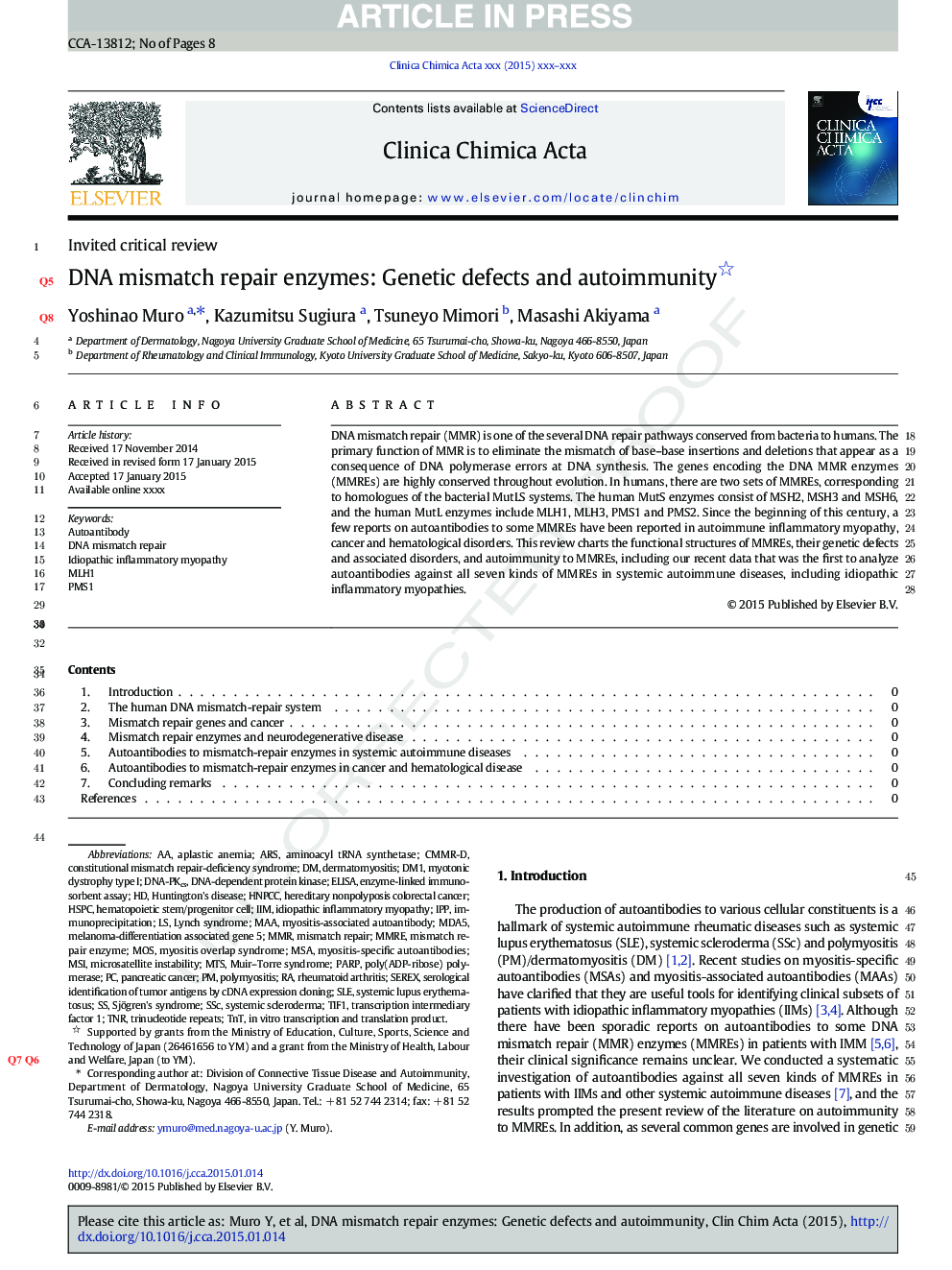| Article ID | Journal | Published Year | Pages | File Type |
|---|---|---|---|---|
| 8311101 | Clinica Chimica Acta | 2015 | 8 Pages |
Abstract
DNA mismatch repair (MMR) is one of the several DNA repair pathways conserved from bacteria to humans. The primary function of MMR is to eliminate the mismatch of base-base insertions and deletions that appear as a consequence of DNA polymerase errors at DNA synthesis. The genes encoding the DNA MMR enzymes (MMREs) are highly conserved throughout evolution. In humans, there are two sets of MMREs, corresponding to homologues of the bacterial MutLS systems. The human MutS enzymes consist of MSH2, MSH3 and MSH6, and the human MutL enzymes include MLH1, MLH3, PMS1 and PMS2. Since the beginning of this century, a few reports on autoantibodies to some MMREs have been reported in autoimmune inflammatory myopathy, cancer and hematological disorders. This review charts the functional structures of MMREs, their genetic defects and associated disorders, and autoimmunity to MMREs, including our recent data that was the first to analyze autoantibodies against all seven kinds of MMREs in systemic autoimmune diseases, including idiopathic inflammatory myopathies.
Keywords
MAAMDA5myotonic Dystrophy type IMLH1TNRHNPCCPms1MOSIIMDM1MMRMSIHSPCPARPSEREXMTSIPPMSAARSSSCMuir–Torre SyndromeDNA-PKcsTIF1Aminoacyl tRNA synthetaseRheumatoid arthritisAutoantibodySystemic sclerodermaMicrosatellite instabilityHuntington's diseaseImmunoprecipitationTrinucleotide repeatsEnzyme-linked immunosorbent assayELISAmismatch repairDNA mismatch repairTnTdermatomyositisPancreatic cancerHereditary Nonpolyposis Colorectal CancerHematopoietic stem/progenitor cellSjögren's syndromeLynch syndromeSystemic lupus erythematosusSLEIdiopathic inflammatory myopathyDNA-dependent protein kinasePolymyositisPoly(ADP-ribose) polymeraseaplastic anemia
Related Topics
Life Sciences
Biochemistry, Genetics and Molecular Biology
Biochemistry
Authors
Yoshinao Muro, Kazumitsu Sugiura, Tsuneyo Mimori, Masashi Akiyama,
